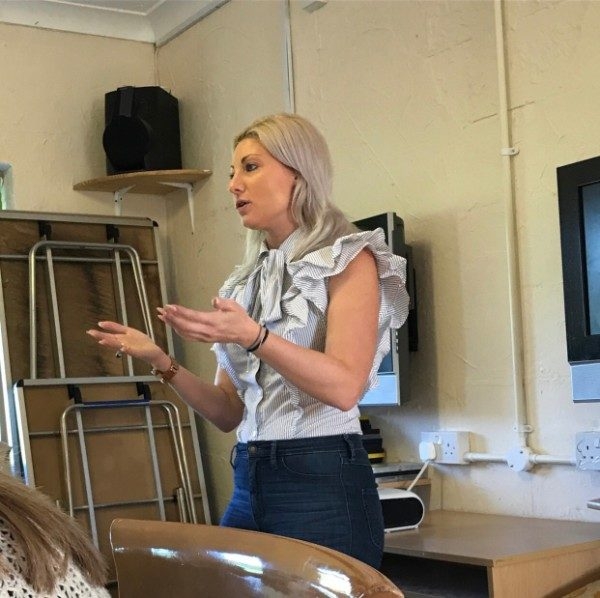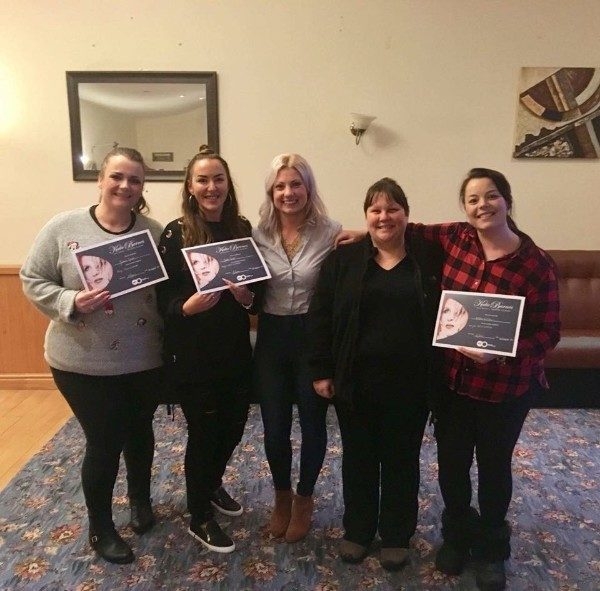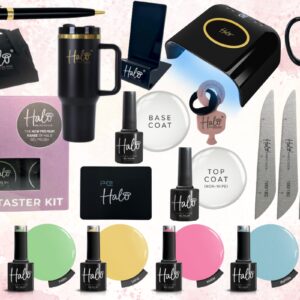
What it’s like to be a nail educator
By Katie Barnes | 19 March 2019 | Tech Talk
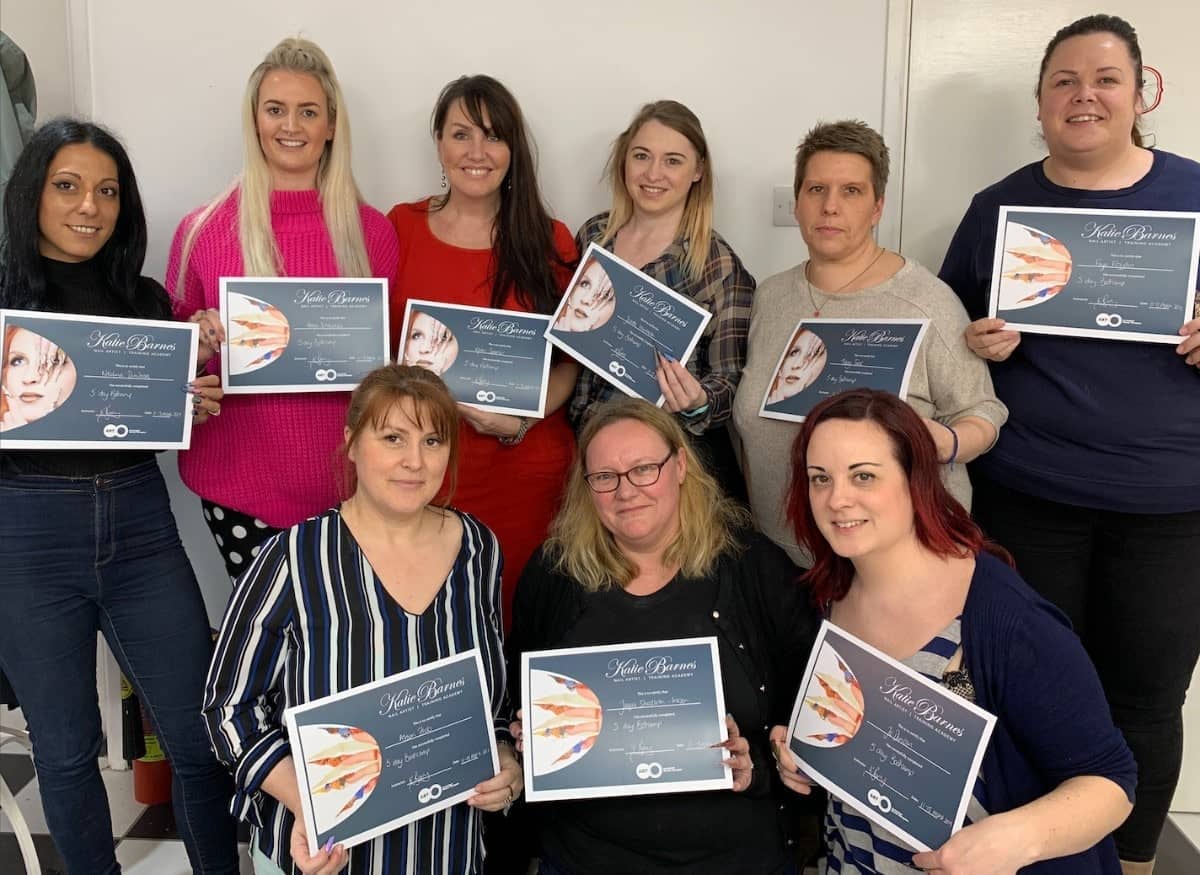
So, you want to become an educator? First, ask yourself why.
Is it because you assume that it is the next step in your career, there’s more money in it and everyone else is doing it? Or do you want to improve and push industry standards, support and encourage others to grow and achieve their goals?
Whatever your reasons, being a successful teacher takes a lot of time and money to initially invest and this doesn’t stop. Continued education and CPD for a teacher is even more essential than anyone else to ensure you are offering your students and peers the most up-to-date techniques, legislation and products.
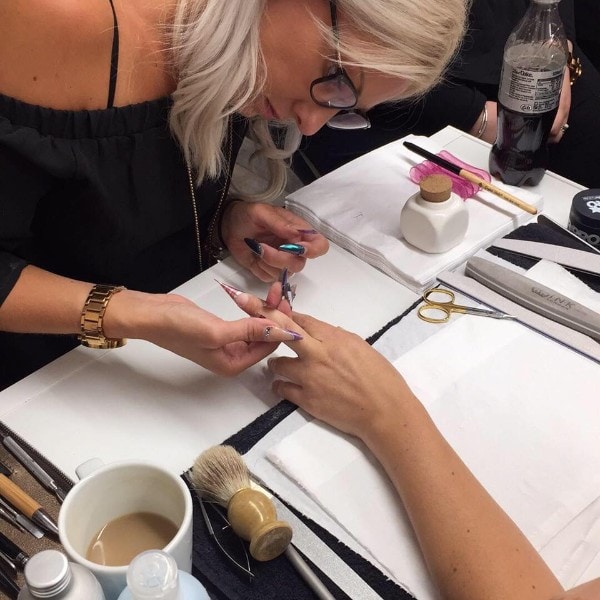 The first step to become an educator is to enrol on a teaching course. The current minimum qualification for teaching adults is an AET. Notice, how I say minimum? Look at it in the same way as your nail services – when you first start you complete your beginner L&P course, does the education stop there, or does a good tech continue to enrol on advanced and skill building courses? This is no different for a teacher, because as well as the technical abilities, you have an additional skill to continue to develop – your teaching expertise.
The first step to become an educator is to enrol on a teaching course. The current minimum qualification for teaching adults is an AET. Notice, how I say minimum? Look at it in the same way as your nail services – when you first start you complete your beginner L&P course, does the education stop there, or does a good tech continue to enrol on advanced and skill building courses? This is no different for a teacher, because as well as the technical abilities, you have an additional skill to continue to develop – your teaching expertise.
While someone may be an amazing nail technician, competitor or award winner it does not mean that they can or should teach.
Teaching isn’t about showing someone how you do a technique; it’s about showing someone how they can achieve that technique.
You must have a minimum amount of experience in the subject you are teaching and you must know your subject inside out. You have to be prepared to give everything you know to your students, if you are not ready to share every little tip and trick you know, then you are not ready to teach.
If you can honestly and confidently say yes to the above questions, there’s several avenues you can take to becoming an educator. If you can’t, then take the time to invest in more education in your subject and teaching skills before you take the leap.
Educate for a brand or educator
This is the perfect starting point to your teaching career. It is important that you work with a brand you are passionate about, believe in and are fully knowledgeable about. Being affiliated with a brand gives you support from a leading name and all of the course material is written for you. The negative is that you are tied to the brand and their way of teaching.
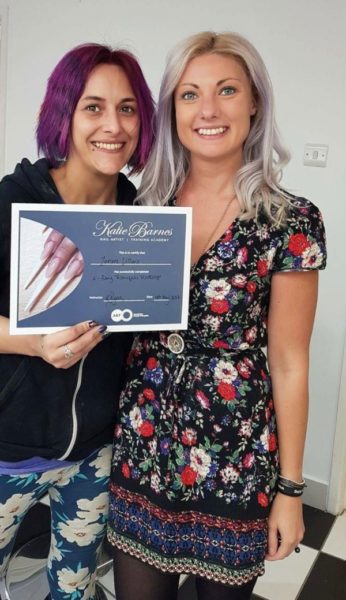 Gain accreditation for private courses
Gain accreditation for private courses
It is easy to underestimate the work and time involved in gaining your own accreditation, especially if you want to get it right. You must create your course content, write thorough and comprehensive manuals, lesson plans, certification, assessments and much more. It is important to get all of this proof read. This is then sent to your chosen accrediting body to approve. They will also guide you on their preferences and criteria. This process requires time and financial investment and can take around six weeks.
The manuals take months to write because of the research needed and everything must be accurate.
It is important that once you have created your manual, you constantly update this as the industry is constantly changing – from legislation and techniques to products.
These changes must then be re-accredited. When I started, I wrote the most popular beginner manuals first – manicure and pedicure and beginner gel polish and then added others, such as nail art and acrylic as I gained more experience. Just like when we started as techs, I believe it is important to not rush into teaching everything right from the beginning as you are also still learning. You should start with the basics and also keep classes smaller and work your way up to larger and more advanced classes as you gain experience in teaching, as if it was a service too.
Being an independent educator gives you the flexibility to teach the way you want and because you are not trying to sell anything, it gives your recommendations more credibility. However, this isn’t the avenue I recommend to someone completely new to this as it is unlikely you will have the confidence, experience and teaching knowledge behind you.
Purchase courses through an accreditation board
For those who want to be independent but don’t feel confident writing their own manuals, you can purchase pre written course content from an accreditation board such as The Guild and just deliver the criteria. This can be a great starting point to your teaching career.
Work in a college
You can apply for a role as a tutor at your local college. This will involve completing an application form and attending an interview. You will teach the course structure you are provided and have the support of the facility and award bodies.
Make sure you are getting into teaching for the right reasons and it will be the most rewarding career.
Love Katie B x

Read the latest issue



